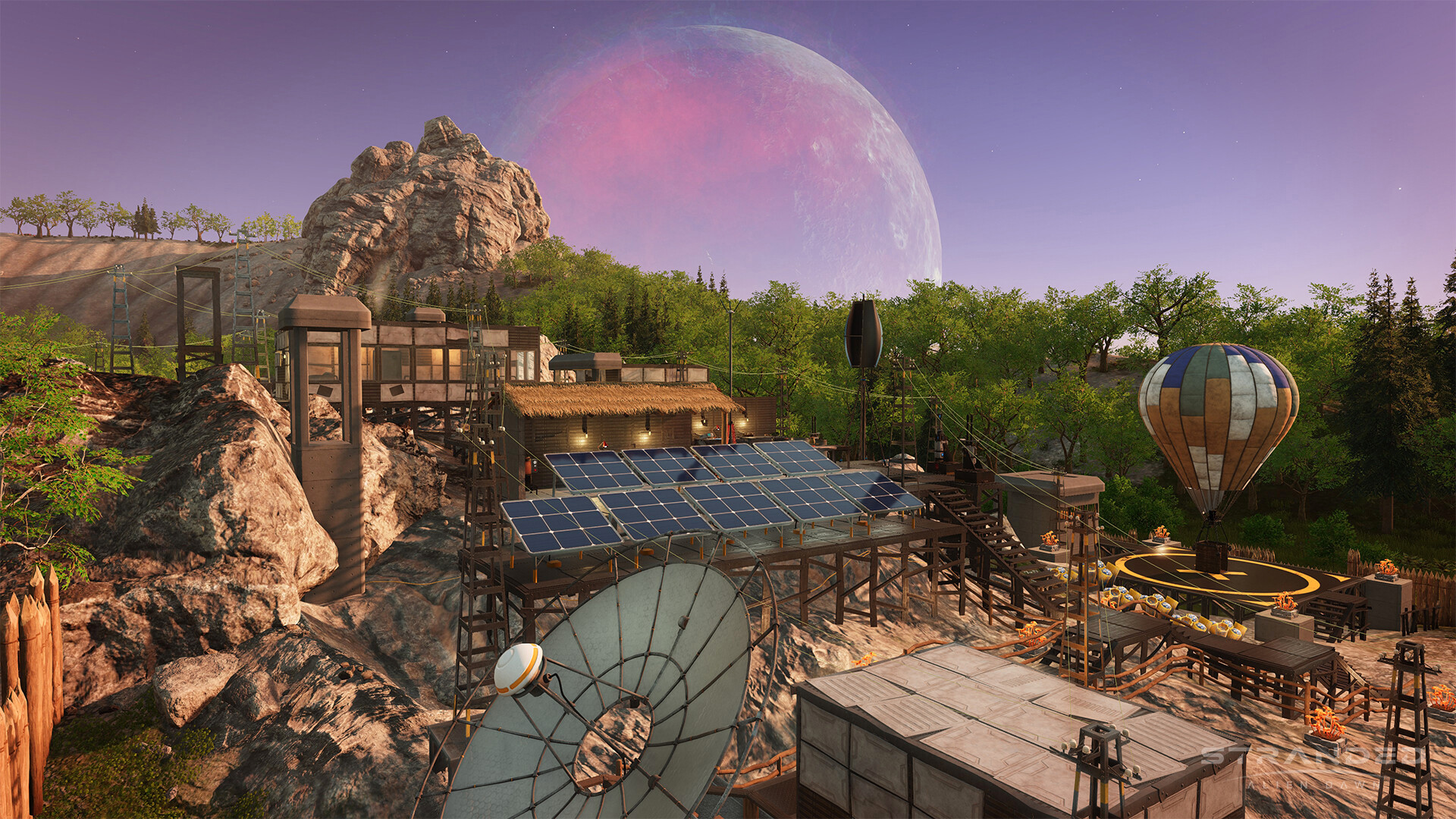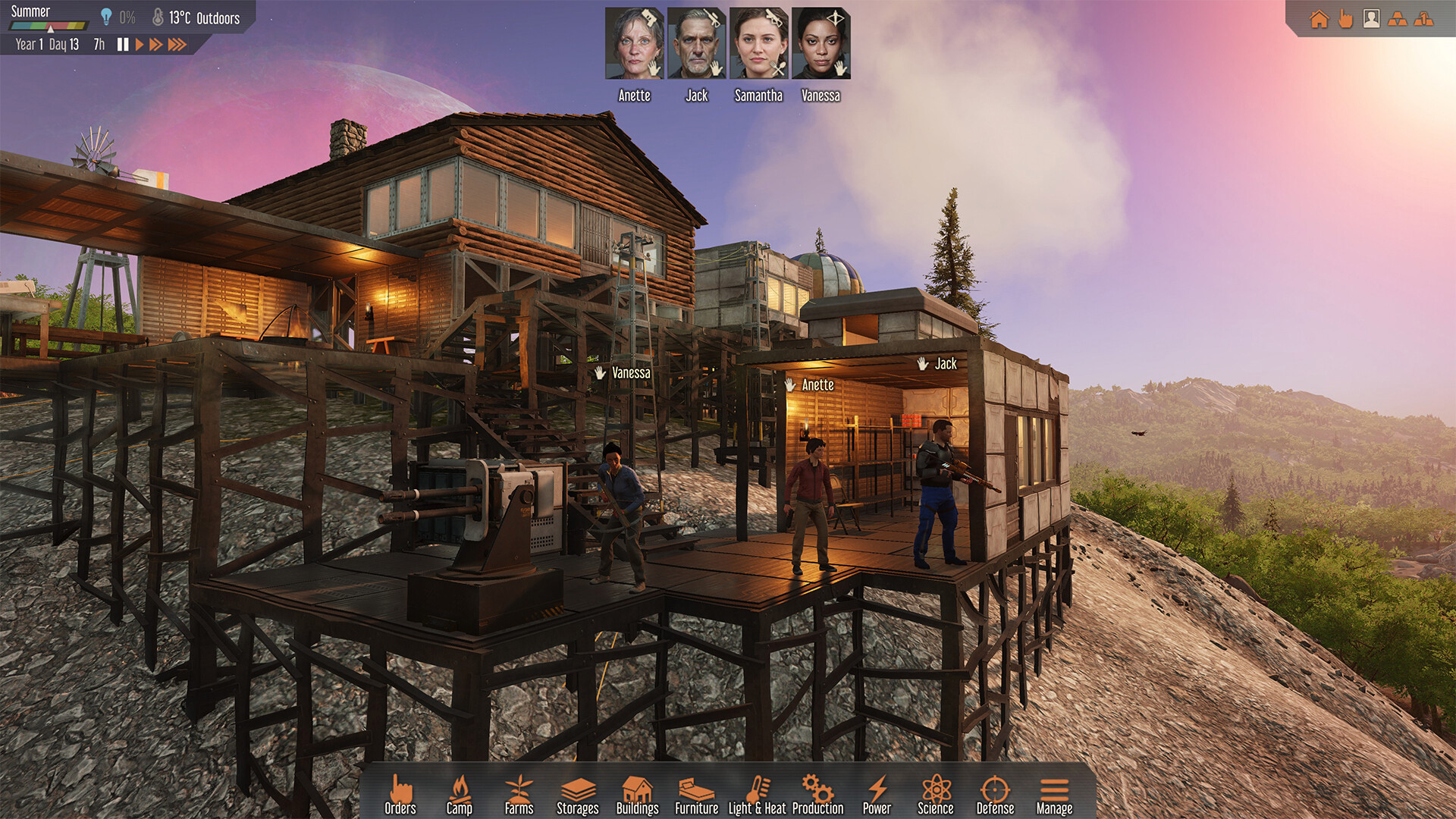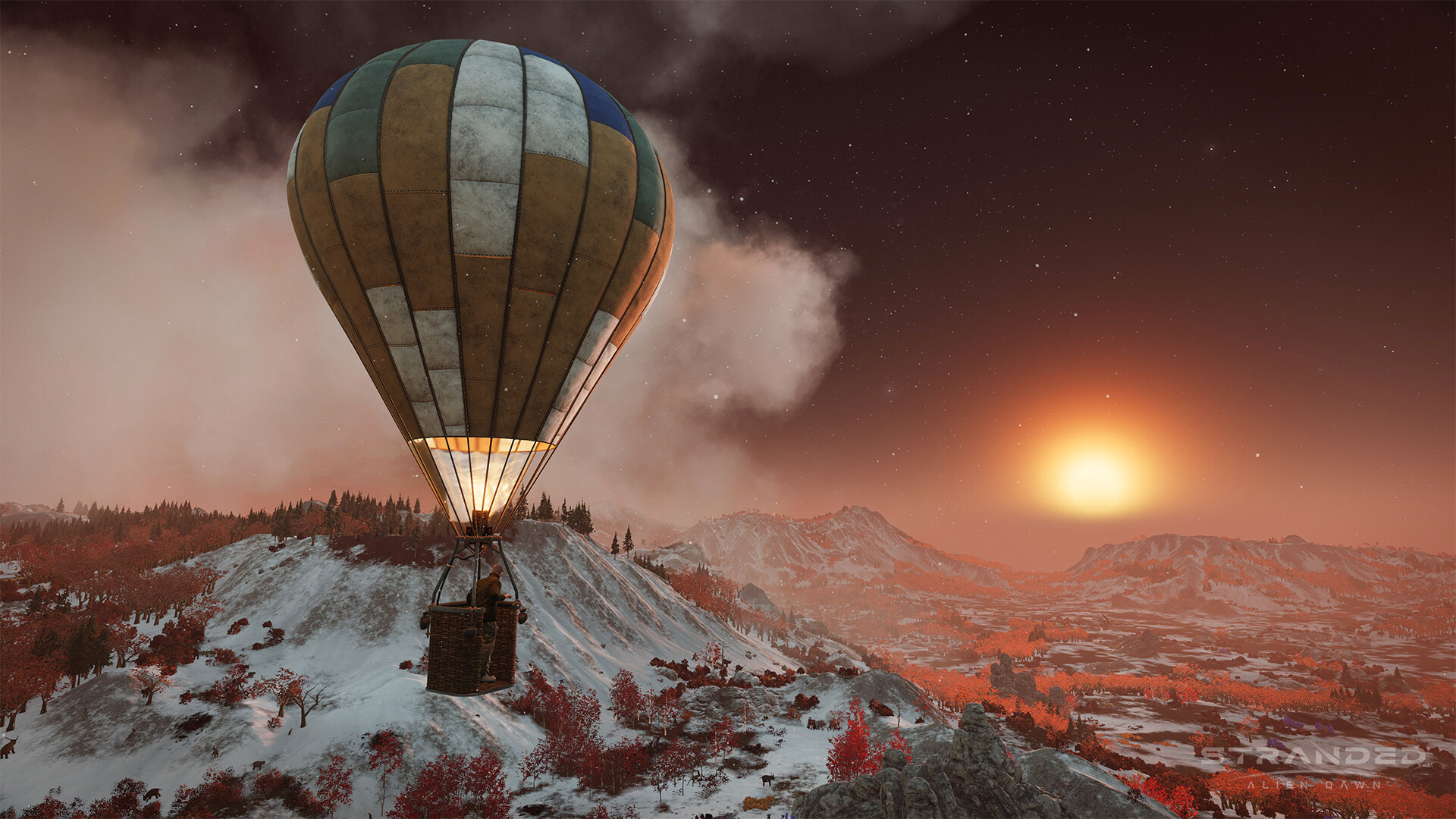Build and defend a base on an alien world in this surprisingly deep survival sim
In Stranded: Alien Dawn, take charge of a small colony and manage every aspect of their lives to help them survive.

Is it weird to say I absolutely loved the tutorial for early access colony survival game Stranded: Alien Dawn? As in, I enjoyed the tutorial so much I might actually play it again from start to finish before starting a proper game? No joke. It's that good.
In Stranded, you're managing a small group of colonists who have crash-landed on an alien planet. Each has a collection of skills and personality traits, and your job is to guide them from scavenging basic supplies to researching new technology to building a base and defending it from giant alien bugs. And of course, you'll need to make sure they all get along with each other and manage their mental health along with their physical health. Think RimWorld, but in a game that looks more like Rust.
The tutorial is excellent (and honestly I think a great move would be to release it as a free demo so everyone can try it), walking you through the first steps of setting up a shelter, basic gathering and storage, and building the first few workbenches. Once you've completed a few starter tasks it skips ahead in the colonist's lives, teaching you how to manage them in combat and keep them happy and healthy, and gives you a look at overseeing a more technologically advanced base with electronics and automated defenses.
The tutorial took me about 90 minutes to finish, and along the way I got a good look at just how deep the management system is. You can set daily schedules for each colonist, give each of their tasks numbered priorities, or even dictate specifically what they do hour by hour, including breaks for rest and entertainment. It's like Asana: The Videogame. You can also "draft" them, which gives you complete control over what they're doing, especially helpful in combat against alien bugs or if there's a specific task you want done immediately.
And it's not just the human colonists you can micromanage. As they collect or generate resources and food, you can even dictate which items can be placed on which shelves in their storage cabinets. If you don't trust these dummies not to store raw ingredients and cooked meals out in the open, you can specifically tell them what goes in the fridge and what sits on the shelf, and tell them specifically what they can eat and what's forbidden. It's a micromanager's dream come true.

You don't really need to monitor and rule over absolutely everything they do—colonists have their own priorities they'll follow—but the point is, you can. I don't imagine I'll keep quite as close an eye on them as the game allows, but it's nice to know the option is there. I've played plenty of management games where one of my citizens kept wandering off and doing something stupid, and I like that in Stranded I'll be able to forbid that behavior. Along with skills for activities like farming, construction, and crafting, colonists may also have interest levels for different tasks, meaning a task may be something they enjoy doing rather than something they simply suffer through.
The tutorial also skips ahead from the survivors living in a crude shelter to building a proper home with a foundation, walls, separate rooms, and all the business that goes along with modern living: electricity from turbines and solar panels, lighting and comfort, air conditioning and temperature control, and even a battery level sensor that tells a diesel generator to kick on when batteries run dry to avoid power loss. Naturally base defenses like auto-turrets and motion sensors also run off the power grid, and setting up different circuits for each system on the grid gives you complete control over your base's power.
The biggest gaming news, reviews and hardware deals
Keep up to date with the most important stories and the best deals, as picked by the PC Gamer team.

Stranded: Alien Dawn just launched into Early Access on Steam. It's developed by Haemimont Games, maker of the Tropico series and Surviving Mars, a pretty great pedigree for management. I'm planning to spend my weekend playing—once I've gone through the tutorial again, just for fun.

Chris started playing PC games in the 1980s, started writing about them in the early 2000s, and (finally) started getting paid to write about them in the late 2000s. Following a few years as a regular freelancer, PC Gamer hired him in 2014, probably so he'd stop emailing them asking for more work. Chris has a love-hate relationship with survival games and an unhealthy fascination with the inner lives of NPCs. He's also a fan of offbeat simulation games, mods, and ignoring storylines in RPGs so he can make up his own.

